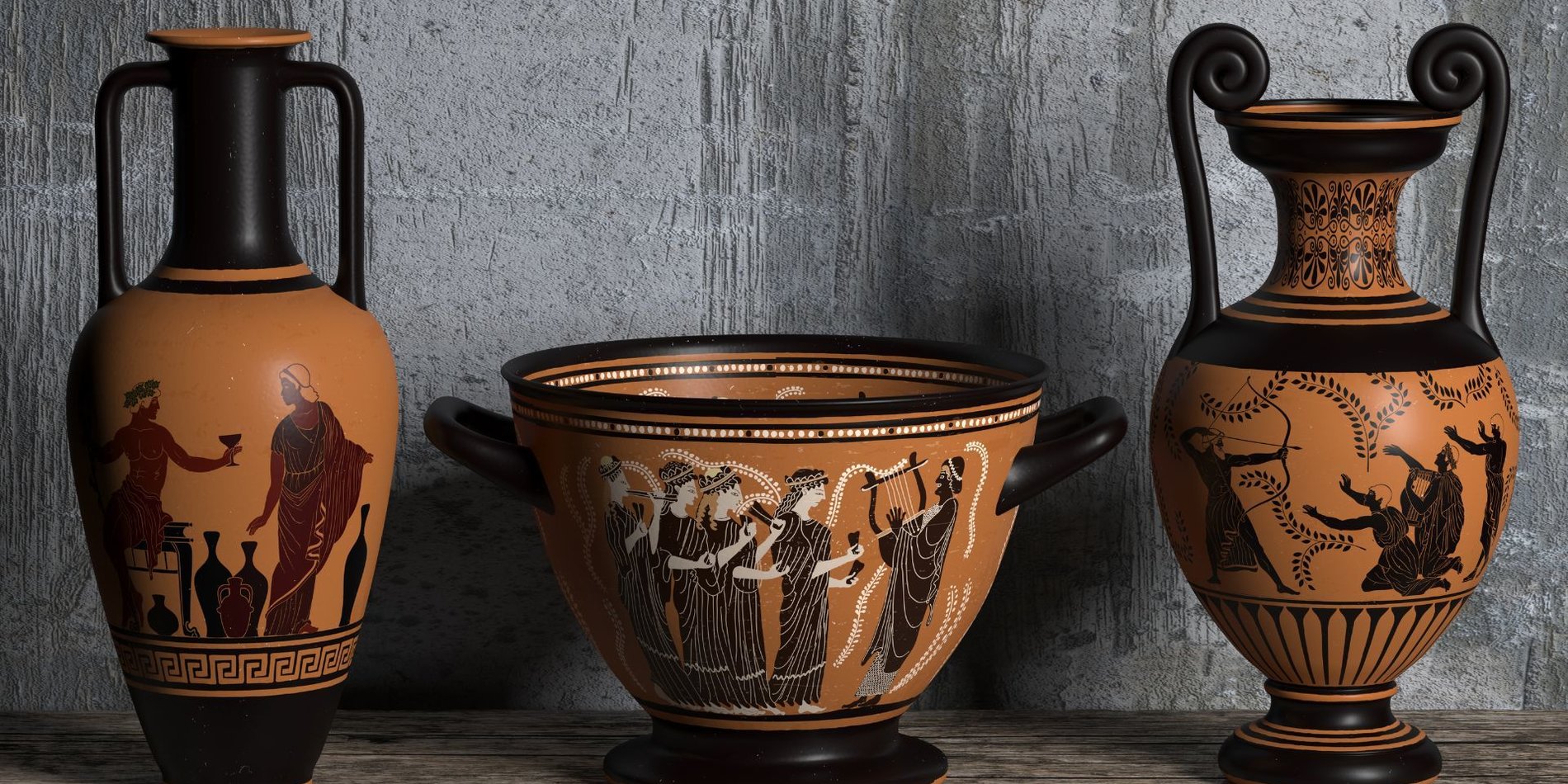ARTHIST 100N: The Artist in Ancient Greek Society
General Education Requirements
Course Description
Given the importance of art to all aspects of their lives, the Greeks had reason to respect their artists. Yet potters, painters, and even sculptors possessed little social standing.
Why did the Greeks value the work of craftsmen but not the men themselves? Why did Herodotus dismiss those who worked with their hands as "mechanics"? What prompted Homer to claim that, "there is no greater glory for a man than what he achieves with his own hands," provided that he was throwing a discus and not a vase on a wheel?
Painted pottery was essential to the religious and secular lives of the Greeks. Libations to the gods and to the dead required vases from which to pour them. Economic prosperity depended on the export of wine and oil in durable clay containers. At home, depictions of gods and heroes on vases reinforced Greek values and helped parents to educate their children. Ceramic sets with scenes of Dionysian excess were reserved for elite symposia from which craftsmen were excluded.
Sculptors were less lowly, but even those who carved the Parthenon's pediments and frieze were still "mechanics" with soft bodies and soft minds (Xenophon), "indifferent to higher things" (Plutarch).
In this seminar, we will explore these and other related issues as they existed in antiquity and persist to this day, even on our own enlightened campus. Students will read and discuss texts and videos, write brief response papers and present slide lectures on aspects of the artist’s profession. Classes will convene in the seminar room, the Cantor Center, the Rodin Sculpture Garden and the Stanford Ceramics Studio, where a seasoned potter will offer individual instruction in the art of throwing vases on a wheel.
Meet the Instructor: Jody Maxmin

Jody Maxmin teaches Greek art in the Department of Art and Art History, with a joint appointment in the Department of Classics. Her interests include Greek vase-painting and sculpture of the archaic period, the art and culture of Periclean Athens, classical influence on later artists, athletics in ancient Greece, and learning from Stanford students. She received a B.A. from Oberlin College and a D.Phil. from Oxford. She has been recognized with prizes for excellence in teaching including the Walter J. Gores Award.



